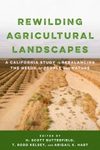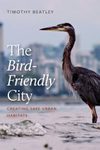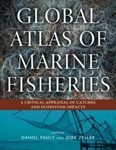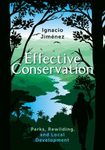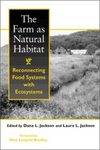"[An] examination of rapid evolution driven by artificial poisons. [Monosson's] tour takes in antibiotic-resistant staph bacteria, herbicide-resistant agricultural weeds, DDT-resistant bedbugs and the blue crabs of Piles Creek, New Jersey. Living in a soup of pollutants including mercury and hydrocarbons, these decapodal survivors display altered behaviours as well as resistance. Monosson ends with a thought-provoking look at epigenetics – evolution "beyond selection"."
– Nature
"[...] a stealth lesson in basic biology – just the book to give to a friend or family member who thinks that evolution has little to do with day-to-day practicalities."
– Los Angeles Review of Books
"WOW! This deceptively slender book packs a helluva powerful punch [...] Unnatural Selection is an engaging and eye-opening book that is essential reading for everyone – city dwellers and country folk alike – who lives on planet Earth [...] Like reading a dystopian novel, this book will capture your imagination and keep you awake into the wee hours. But unlike a dystopian novel, the author actually proposes evolutionarily-sound strategies for what we can do to stop the damage before it becomes lasting."
– The Guardian's GrrlScientist blog
"Toxicologist Monosson looks at the alarming effects of rapid evolution caused by pesticides, antibiotics and pollutants."
– Toronto Star
"The power of evolution, toxicologist Monosson (Evolution in a Toxic World) demonstrates, is quite amazing: when strong selective pressure is coupled with short generation times, significant changes in populations can occur over very brief intervals. [...] She concludes with an interesting, if tangential, discussion of epigenetics."
– Publishers Weekly
"Part science-lover's paradise, part horror novel, Monosson describes these human-influenced evolutionary terrors in fascinating detail."
– The Daily of the University of Washington
"Unnatural Selection is eye-opening and more than a little disquieting."
– Science Book A Day
"Emily Monosson, an environmental toxicologist, describes in compelling and occasionally frightening detail how humans are the driving force behind the rapid evolution among cancer cells, bacteria, weeds, bedbugs and other creatures."
– The Nature Conservancy's Science Chronicles
"[A] remarkable book [...] this book should be read by anyone who cares about the environment in the Anthropocene."
– Environment, Development, and Sustainability
"Darwin's evolutionary laboratories were far flung islands and exotic shores. Emily Monosson uncovers rapid evolution much closer to home, in our farm fields, cities and even among the microbes in our own bodies. Through personal stories and scientific discovery, this readable, accessible account explores the evolution that Darwin never knew."
– Stephen R. Palumbi, Professor of Marine Science, Stanford University and author of The Evolution Explosion
"In a world where the denial of evolution – or its importance – is still common, this book should convert even the most entrenched skeptics."
– Andrew Hendry, Professor, Redpath Museum & Department of Biology, McGill University
"Prepare for the unexpected! Evolution has consequences and when we rapidly drive the process, through our profligate use of antibiotics and toxic chemicals, we should be prepared for unexpected outcomes. Monosson succinctly shows us how and why our inability to control diseases and pests and grow sufficient food to eat is an inevitable product of our anthropogenic toxification of the Earth. Eye opening and timely."
– Daniel T. Blumstein, Professor & Chair of the Department of Ecology and Evolutionary Biology, UCLA


























